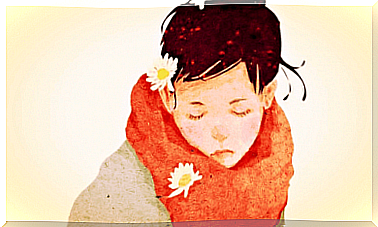The Wounds Of Authoritarianism Take The Longest To Heal

The humiliation, the aggression, and the feeling of being controlled… The wounds of being subjected to authoritarianism heal very slowly, and the scars can remain forever. Therefore, the shadow of an authoritarian mother or father, a dominant partner or a narcissistic and authoritarian leader may remain with us for years to come in the form of an unbreakable knot.
Because of this, it is always important to talk about authoritarianism. It does not matter if it is from a mental or social point of view, it never hurts to analyze this subject, which created such a historical tumult. Theodor Adorno theorized about the authoritarian personality in his book in 1950. Since then, research on authoritarians in particular has really made progress thanks to social psychology and a lot of investigation and research.
Although there is very reliable information about this psychological profile, there is not much information about the influence that authoritarians can have on others. In this case, we are not just talking about the influence of an authoritarian parent; we also believe that one can be influenced in romantic relationships and in work situations controlled by an authoritarian person.
Relationships with an authoritarian person can be debilitating and harmful. In addition, you may feel that you do not always know how to handle such a relationship. Therefore, it is a very important issue that is worth digging a little deeper into.

The poet Luis Cernuda said that we are all echoes of something. We all carry a voice, a weight, a burden that stays with us consciously or unconsciously. For example, we all know that a childhood marked by abuse and neglect has traumatic consequences that affect the child on all levels: emotionally, psychologically and when it comes to development, etc. The shadow of authoritarianism is present in many ways in our society. In addition, not only do authoritarians live among us, but we let them live with us.
There are mothers and fathers who underestimate their children and control them in an excessive and harmful way. This limits the children’s emotional development. In a similar way, this happens in many organizations and companies. We value innovation, creativity and human capital, but there are still those who hold leading positions who prefer obedience. This kind of leader does not hesitate to diminish and control their workers.
Dr. Eric R. Maisel, a well-known psychologist and author at the University of California, validated in 2017 a survey to assess the harms of authoritarianism. This interesting tool helps us to investigate how people are affected by the dynamic impact of authorities. After Maisel distributed the survey to universities, health clinics and well-known companies, the researchers were able to conclude that a large part of the population was scarred by authoritarianism. This means that an authoritarian person had shaped them in some way at some point in life.

Maisel’s scale estimates ten dimensions that exist in each relationship, whether it is a family relationship, with a partner or if it is a working relationship. If we identify these dimensions, it can help us reduce the negative impact that authoritarianism can have on us and act before the authoritarian negative impact shapes our way of thinking and acting.
These are the dimensions:
- Threats and the use of the fear of extortion.
- Underestimation of others.
- Idealistic rules (unclear, meaningless or vague rules)
- Hatred: this feeling is always present, and it is directed at us or others. The authoritarian always has people on their “blacklist” that they hate and consider to be their enemies.
- They have their own truth, image and perception of what the world is like. According to them, everyone else is wrong.
- They are controlling, but the authoritarian’s need for control is much greater than usual. They also like to ridicule and humiliate others.
- Nuanced mindset.
- They are intrusive.
- They do not trust anyone or anything.
- They have no empathy whatsoever.
The wounds created by authorities are traumatic. They can change our personality, change our choices and give us a distorted view of ourselves. All this depends on how many times we have been in contact with the authoritarian person and how we ended the relationship with that person.
Let us look at the effects that this type of abuse and control can have on us:
- Low self-esteem.
- A feeling that we have no control over ourselves.
- Uncertainty.
- Anxiety and post-traumatic stress.
- Feelings of powerlessness or worthlessness
- Frustration and accumulated anger that we do not know where to turn.

Many people go into therapy several years after working for a company. Once they have left the company, they feel the need to let go of many emotions. They suffered at work and their dignity was violated. At work, they were beaten, controlled and humiliated by those in power.
In many situations, you can experience the same thing when one of the people acts in a similar way. Therefore, we must keep in mind that we experience a type of abuse when we feel that our freedom is restricted in any way. It may not be physically noticeable. Our criminal law would probably not even register these behaviors as complaints. In any case, the authoritarian actions threaten our rights, and we must protect ourselves.
In these cases, the psychological interventions should focus on rebuilding the lost self-esteem. The patient needs to share the harmful situations in a verbal way. They need to discover, understand and accept that they are victims of psychological abuse. In addition, therapies such as EMDR (blunting and reprocessing) are used more and more to treat unpleasant and traumatic events, reduce anxiety and promote emotional recovery.
Finally, we should never allow authoritarianism to enter our lives unnoticed. This can have serious consequences.







